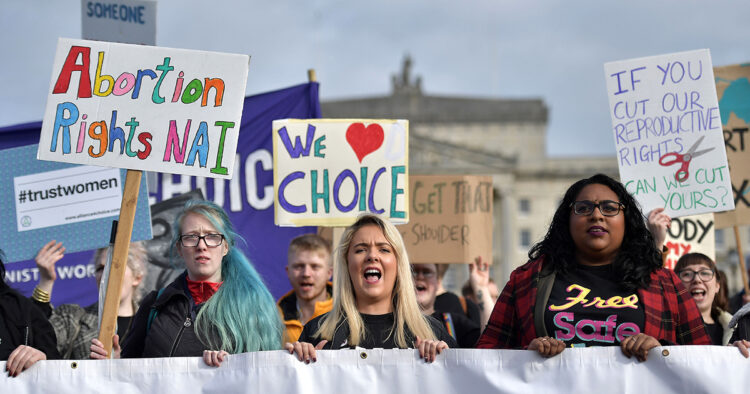By Isabelle Wilson-
Abortion rights could emerge as a central issue in shaping the electoral landscape.
Abortion has long been a contentious and deeply personal topic, has long been a lightning rod in American politics.
The battle over abortion rights has ebbed and flowed, but never has it felt more imminent and pivotal than in the lead-up to the 2024 U.S. elections. Pro abortionists will do everything in their power to ensure Trump gets nowhere near the house.
That’s besides his multitude of legal transgressions that many feel disqualify him from power anyway. The former U.S many critics would rather see him in jail, and there are many prosecutors actively working towards that end.
But there have been no strong signs this will happen as Trump has many lawyers on an expensive pay roll fighting to make sure he not only remains a free man, but also he is allowed to fully participate in the elections.
With Americans sharply divided, and the present controversial abortion laws igniting passionate debates across the political spectrum, it’s increasingly evident that abortion rights could emerge as a central issue in shaping the electoral landscape. I
At the heart of the abortion debate lies a fundamental clash between personal autonomy and moral convictions.
On one side are those advocating for reproductive rights, emphasizing a woman’s right to choose and control her own body. On the other side are anti-abortion activists, driven by religious beliefs and ethical concerns about the sanctity of life.
This ideological chasm has been further exacerbated by recent legislative efforts across various states, enacting restrictive abortion laws that challenge the landmark 1973 Roe v. Wade decision legalizing abortion nationwide.
The stark divergence between the two major parties’ stances on abortion adds fuel to the fire. Former President Donald Trump, a Republican, consistently aligned himself with the anti-abortion camp, appointing conservative judges to federal courts and advocating for measures aimed at curtailing abortion access.
Conversely, President Joe Biden, a Democrat, has been a vocal supporter of abortion rights, pledging to protect and expand access to reproductive healthcare services, including abortion, during his tenure.
The Role of the Supreme Court:
The composition of the Supreme Court further intensifies the stakes surrounding abortion. With the recent confirmation of conservative justices under the Trump administration, the balance of the court has shifted, raising concerns among abortion rights supporters about the potential for Roe v. Wade to be overturned or severely weakened. This prospect has galvanized activists on both sides, amplifying the significance of abortion as a decisive election issue in 2024.
Beyond the ideological battleground, the repercussions of abortion laws extend to public health and gender equality. Restrictions on abortion disproportionately affect marginalized communities, including low-income individuals and people of color, who already face barriers to accessing healthcare.
Furthermore, limitations on reproductive rights undermine women’s autonomy and economic empowerment, perpetuating cycles of inequality and disenfranchisement.
The economic implications of abortion policies cannot be overstated. Studies have shown that restricting access to abortion leads to adverse outcomes, including increased rates of poverty, unemployment, and maternal mortality.
Conversely, policies that support reproductive freedom contribute to healthier families, higher workforce participation among women, and improved socioeconomic outcomes. As such, the economic dimension of abortion rights resonates with voters concerned about fiscal responsibility and social welfare programs, adding another layer of complexity to the electoral calculus.
The broader landscape of healthcare access intersects with the abortion debate, highlighting systemic inequities and the role of government in safeguarding public health. In a country where healthcare remains a contentious issue, particularly in the wake of the COVID-19 pandemic, voters are keenly attuned to candidates’ positions on reproductive healthcare and the extent to which they prioritize the well-being of all citizens.
In an increasingly interconnected world, voters are attuned to candidates’ approaches to addressing pressing global challenges, such as climate change and environmental degradation.
The intersectionality of abortion rights with environmental concerns underscores the multifaceted nature of contemporary political discourse, with voters weighing candidates’ positions on a range of issues that matter most to them.




